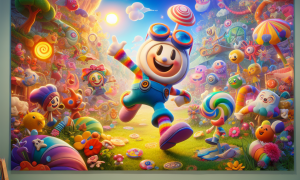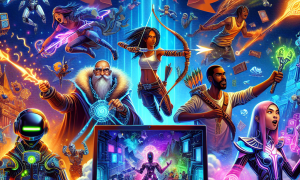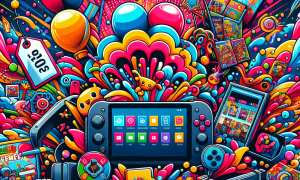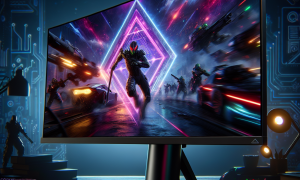The gaming world is experiencing a significant shift as reports emerge that the Prince of Persia Metroidvania team disbanded. This decision, attributed to Ubisoft’s desire to allocate its resources toward projects with “better sales potential,” raises concerns among fans and the gaming community. The team was responsible for creating an installment that revived interest in the iconic Prince of Persia series, yet now they find themselves reassigned to different projects.
The Rise and Challenges of the Prince of Persia Series
Prince of Persia has long been a beloved franchise, captivating players with its rich storytelling and engaging gameplay. However, it faced challenges in maintaining relevance in an ever-evolving gaming landscape. The Metroidvania-style game revitalized the series by blending exploration and combat, which appealed to both nostalgic fans and newcomers alike.
Despite positive reception and praise for its innovative design, the project struggled to gain widespread sales. The game’s artistic direction, combined with the meticulous attention to gameplay mechanics, highlighted the exceptional talent of the team behind it. As their unique vision unfolded, many believed that the Prince of Persia series had finally found a new lease on life.
Ubisoft’s Shift in Strategy
The decision for the Prince of Persia Metroidvania team disbanded has raised eyebrows. Ubisoft, a company known for its ambitious projects, often evaluates its development teams based on potential profitability.
Some key factors influencing their decision include:
- Market Demand: The gaming industry is ever-changing. Ubisoft aims to focus on games that promise higher returns in the current market.
- Resource Allocation: The disbanding is a strategic move to allocate talented developers to projects with better financial forecasts.
- Franchise Performance: Previous entries in the Prince of Persia series have had mixed success in terms of sales figures. This uncertainty weighs heavily on decision-making.
While the business rationale may be logical, the emotional backlash from fans is difficult to overlook. Many loyalists are disheartened by the prospect of losing a team that showcased immense creativity and dedication to reviving a classic.
The Future of the Prince of Persia Franchise
With the Prince of Persia Metroidvania team disbanded, many are left wondering what the future holds for the franchise. Will Ubisoft continue to explore new avenues, or has this move spelled the end for a series once beloved by gamers?
Potential Directions for Ubisoft
While the disbandment might seem detrimental, it could also present new opportunities for the Prince of Persia brand. Here are a few potential paths:
- Collaboration with Another Team: Ubisoft could assign the Prince of Persia IP to a different team within the company, perhaps one focusing on a genre that aligns more closely with current gaming trends.
- Exploring Mobile Gaming: Activating the franchise into mobile platforms could be another way to capitalize on its legacy while tapping into a wider audience.
- Remakes or Remasters: Instead of creating new titles, Ubisoft could revisit classic entries, breathing new life into them for contemporary consoles.
While change is often met with resistance, it could prompt innovative ideas that resonate with both old fans and new ones.
Impact on Fans and Community Reaction
The disbanding of the Prince of Persia Metroidvania team disbanded has stirred various reactions in the gaming community. Some fans are optimistic, believing that change could usher in new inspiration, while others feel disillusioned by the decision. The latter group fears that a franchise they loved could vanish in favor of more profitable ventures.
The emotional ties to the Prince of Persia series aren’t easily severable. Players fondly recall the hours spent immersed in its rich environments and intricate narratives. The idea of losing a team that championed innovation only deepens the sentiment of nostalgia.
Voices from the Community
Many players have taken to social media and gaming forums to express their feelings about the team’s disbandment. Common sentiments include:
- Disappointment: Many feel let down by Ubisoft’s prioritization of profit over creativity.
- Concern Over Quality: Fans worry that a focus on financial gain may lead to a dilution of the core gameplay experience.
- Hope for Future Titles: Despite their disappointment, some fans still express hope for future iterations of the franchise, provided they maintain the spirit of the series.
As these discussions unfold, they serve as a testament to the enduring legacy of Prince of Persia and the impact it has left on generations of gamers.
The Importance of Supporting Diverse Projects
The narrative surrounding the disbandment ultimately raises crucial points about the gaming industry’s direction. Supporting diverse and innovative projects is essential to sustaining creativity within game development. When organizations prioritize financial gain above all, they risk stifling creativity and exploration within gaming.
Fans passionately supporting unique titles, such as the Prince of Persia Metroidvania, can influence the decisions of major publishers. By voicing their opinions and supporting campaigns for innovative projects, gamers can foster an environment where creativity flourishes.
Final Thoughts
The disbanding of the Prince of Persia Metroidvania team presents mixed emotions within the gaming community. While some see it as a rational business decision, others lament the loss of a team that reinvigorated a classic franchise. In the face of uncertainty, one thing remains clear: the love for Prince of Persia will continue to drive discussions and hopes for future projects.
As gamers, it is essential to stay engaged and advocate for diverse projects that push boundaries while honoring established franchises. With enough community support, perhaps the Prince of Persia series can find yet another renaissance, capturing the hearts of players for years to come.
Citation: The team behind the excellent Prince of Persia Metroidvania has reportedly been disbanded because Ubisoft wants those devs on games with better sales potential written by Dustin Bailey









